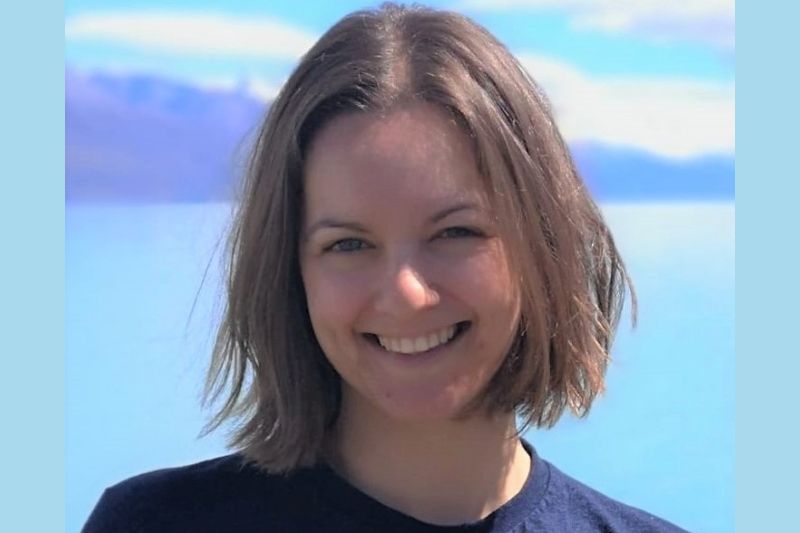REWI: Tess, we’re so happy to have you here. Could you tell us something about the Land Steiermark Fellowship that brought you here?
Tess Upperton: Thank you for having me, it’s wonderful to be here in Graz!
I’m supported by Land Steiermark for a four-month long fellowship at Uni Graz. It offers me the opportunity to gain experience in an international and vibrant scholarly environment and enjoy the wonderful city of Graz. The fellowship will last until February 2021 and for me it’s a real honour to be the first fellow at the Faculty of Law.
I have a few goals during the fellowship: to publish a comparative paper on COVID-19 with support from the various legal disciplines represented at the Faculty of Law. Also, I want to immerse myself in faculty life, and learn about the Austrian and European legal system.
The fellowship gives me the opportunity to focus on research I’m most interested in, getting to know interesting scholars and also have time to learn Deutsch on the side!
REWI: As we just heard in your talk "Lockdown by Press Conference? Comparing the COVID-19 Lockdowns in Austria and New Zealand", your research currently focuses on the comparison of Austria and New Zealand during the Corona Pandemic. What would be the most interesting finds for you during your research you’ve conducted so far?
Tess Upperton: I’ve found the two rights cultures to be at almost opposite ends of the spectrum. Aotearoa New Zealand was colonised by Britain, and we still operate under a constitutional monarchy. While there is discussion in academia about amending our constitution and strengthening rights protections, I don’t think that same conversation is present in mainstream discourse.
Culturally, in New Zealand we’re a bit reluctant to stick our necks out and make some noise about our individual rights. In contrast, Austria’s status as a republic and its supreme constitution have created a really different rights environment.
I’m impressed that rights are often a central part of the conversation here, and there’s generally quite a different attitude about asking hard questions and holding the government to account.
REWI: That’s really interesting. Having our current lockdown in mind, the different reactions definitely led to different outcomes. How would you say that the differences you’ve described fed into each country’s response to COVID-19?
Tess Upperton: It’s interesting, because initially New Zealand and Austria had very similar responses, locking down each country within 10 days of each other. But we’ve seen New Zealand adopt an elimination strategy and stick to a hard line that few other countries have chosen (or been able) to do. I think a part of that is cultural - we do view ourselves as a small and united country. And of course, a lot is geographical, and structural as well - we have a very centralised system of government without the complexities of a federal system and it is easier to shut a country off if it’s surrounded by the sea.
Meanwhile Austria’s policy has shifted to a more lockdown-avoidant, rights-focused approach, which has of course seen a corresponding rapid rise in case numbers.
So, I think seeing how New Zealand’s somewhat diluted rights culture has possibly contributed to creating an effective health response to COVID-19 is interesting when you contrast it with other countries.
REWI: Tess, thank you very much for this brief overview. We’re really looking forward to your upcoming research results! Maybe we can finish with some details on your time before you came to Graz?
Tess Upperton: I studied Law and Psychology at Victoria University of Wellington, New Zealand, and worked there as a tutor and teaching fellow. Before coming to Graz, I was working as a solicitor at a large commercial law firm in New Zealand.
I really enjoyed my time there as I was exposed to a big range of challenging work, from intellectual property to privacy issues to public law. I also helped set up the Aotearoa Legal Workers’ Union, which sparked my interest in community movements and social justice.
REWI: This sounds like a broad field of interests! Any ideas on what you’d like to focus on after the fellowship?
Tess Upperton: After the fellowship, I’m hoping to stay on at Uni Graz for a while, then will see how COVID-19 is shaping up - my grand plans of an international career may have to be postponed for a while...
Aber ich möchte weiter Deutsch lernen, und ich liebe die Stadt und die Menschen hier, also habe ich keine Eile zu gehen!
REWI: We’ll that sounds like a plan! Let’s get to our very last question: apart from legal issues – what’s the most striking difference for you, comparing Austria to New Zealand?
Tess Upperton: That when you ask “how are you” in Austria, people take it as a serious question and will actually tell you how they are. I appreciate that so much - in New Zealand, you ask everyone you see how they are, but you never want a proper response!
The two other differences I have to mention very briefly are a) Austria has an incredible cycling culture (I can’t believe how great the bike lanes are) and b) I do miss living by the sea in New Zealand - you should all come see it some time.
